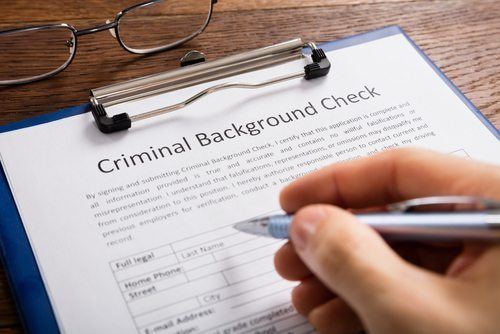As a criminal defense attorney, located in Philadelphia, Pensylvania, I have seen in recent history, the United States has witnessed a general trend of tougher laws and aggressive policing and prosecution which has greatly increased the number of Americans with a criminal record. Although estimates vary, the United States Department of Justice has indicated that approximately 100 million people, or one in three adult Americans, have a criminal record. For many, a criminal background search will present a barrier to employment In this article, I will discuss the various types of criminal record searches in Pennsylvania and their effects.
What Types of Criminal Background Searches are Used in Pennsylvania?
Regardless your personal belief about the value of employee criminal record checks, employers have a responsibility to take reasonable measures to create a safe workplace and workforce. Because of this, many employers (as much as 80% of corporate America) use criminal background checks to help predict how an individual’s past might impact their safety and performance on the job. When it comes to criminal background checks federal, nationwide, state, and local records among the available types.
Federal Criminal Records Search. With a federal criminal background check, employers receive reported information from each of the 93 districts that handle federal criminal, civil, and bankruptcy cases. Employers will only receive information about federal records, many of which are “white collar” crimes. A federal search will not find state or local level criminal information.
The Federal criminal records search is most commonly used when companies search for managerial, executive, and financial positions. Since federal records can reveal serious “white collar” crimes that could impact hiring decisions for these high-trust positions, employers will almost always use the Federal Criminal Records search. There are also limitations of a federal search. Since the federal indices contain limited identifying information, employers must use caution before concluding that a particular record is accurately matched to their subject. As with any employment background check, it is important for employers to comply with rules and regulations related to the collection, dissemination, and use of criminal information throughout the employee selection process.
National Criminal Database Searches. Employers also use the national criminal records search. With a national criminal records check, employers can cover a large majority of the more than 3,000 U.S. jurisdictions with a single search. This makes criminal record searches highly useful in the screening process. However, not all jurisdictions allow access to their data and not every database is well managed to ensure accuracy and timeliness. Because of these constraints, there are very strict limitations on how an employer can and should use national database records. As an employer, it is important to understand the appropriate use of national criminal data.
When Do Employers Use the National Criminal Database Searches?
In positions where a criminal background check is appropriate and relevant to the job, a national criminal database search can play an important role. However, the best place to get accurate criminal records information is at the county or local level courts and not through a national database. That said, with more than 3,000 jurisdictions in the U.S. it would be time and cost prohibitive to search every jurisdiction for every employee. This is why the database is so important.
A national database search can provide useful “pointers” to guide specific local criminal searches. If a red flag appears in a database search, employers can follow up at the source to confirm or deny the findings before making an employment-related decision based on the information.
State-Level Criminal Records Checks. Similar to national criminal database searches, state-level criminal records checks should be supplemented and verified by specific local jurisdiction searches as determined by activity uncovered in the statewide search. While statewide searches are useful in some situations, they can present serious limitations in others. A statewide criminal records search often does not reflect the current status of the local jurisdiction records.
Also, while jurisdictions are mandated to report to the statewide repository, in reality, there are very little mechanisms to ensure that every jurisdiction reports properly, meaning that employers cannot be certain of the coverage. Finally, and importantly, statewide data very often lacks disposition information so while employers may find out about an arrest, the outcomes may not be found.
Local Criminal Background Checks. Local criminal background checks can be the best source of criminal information about job candidates and employees. Of course, like anything else, there are steps that must be taken to ensure quality, compliance, and accuracy. Local criminal records searches are conducted in any jurisdiction where the applicant or employee has resided. Typically, employers will ask for a 7-year address history and search those jurisdictions. In addition, employers will use a state or national database search to pinpoint any other possible criminal activity in jurisdictions other than previous residences. Bear in mind that federal crimes are not found in local criminal records. Even if the applicant has a clean criminal record at the local level, there may still be a serious criminal history on a federal records search. There are good reasons why a comprehensive look at an applicant’s past can only be achieved by searching multiple sources.
How Can I Access My Criminal History in Pennsylvania?
Generally, when a person is convicted of a crime, it becomes public record; in fact, sometimes searching a person’s criminal history is as easy as visiting the courthouse or checking another public database. This is often the case for people who are looking into their own criminal records. However, depending on the situation and how deeply you want to search a criminal record, you might have to officially request access and, depending on who you are and your purposes, you could be denied access altogether.
Government Agencies. Most government agencies have no problem accessing criminal records, however, regarding voluntary situations, the agency might require your consent.
Non-Government Agencies. Most often, you must give your consent for any person, agency, or organization not affiliated with the government or law enforcement to access your criminal record related to certain eligibility purposes. For example, background checks are required to purchase firearms, but a firearm’s dealer cannot access your criminal record if you are not attempting to purchase a gun. Similarly, some schools, colleges, and universities require background checks for admittance, however, staff members cannot search your record without your permission. Of course, refusing to grant access is a red flag, and often a deal-breaker.
General Public. Some criminal records are considered public records and others are not and this generally relates to the specific record. For example, some states allow the general public access to a person’s criminal record, but not the person’s background check. Often, states set their own definitions for “criminal records” and “background checks,” but understand that in most cases criminal records are more thorough.
Criminal background records check may include:
- Current and sometimes past addresses
- Marital or divorced status
- Bankruptcy filing history
- Felony status or serious driving offenses
- Specific arrests, convictions, penalties such as prison time, probation, and parole
- Race
- Tattoos
- Hair and eye color
- Height and weight (depending on how up to date the record is kept)
Criminal records checks are also used for:
- Property rental.
- Military service.
- Security clearance.
- Purchasing firearms. Under federal law, felons cannot purchase or own firearms, but, depending on the situation, some felons can apply to have their gun rights restored.
- Adopting or fostering children
- Certain types of licenses, such as applying for a CDL
- Voter registration. Not all states allow residents with felonies to vote, however, some states restore voting privileges after the person has met all penalty requirements (i.e. jail time, parole, or probation)
- Purposes related to visas, immigration, naturalization, and international travel
- Law enforcement purposes, such as compiling possible suspects for a criminal investigation
A criminal records check can make or break myriad attempts at employment, apartment rentals and even higher education. If you have questions about your criminal record, contact the Fishman Firm.






